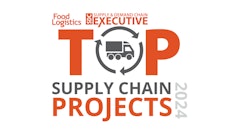Newly elected U.S. president Barack Obama's move to protect American jobs by mandating local procurement of materials has invited the question of whether this could also include contact center outsourcing. Given the prospect of significant legal problems in legislating an outright ban on offshoring contact center work, Obama is more likely to use tax provisions to maintain equivalent domestic jobs.
Barack Obama's recent stimulus package has already generated controversy among American business leaders due to provisions that will require all steel used in infrastructure projects paid for by this bill to be produced domestically. While these stipulations have no direct impact on the outsourced contact center sector, companies that provide these services to U.S. customers from offshore locations may wonder if they have cause for concern. However, Datamonitor believes that these firms are worrying unnecessarily.
One reason for this is that campaign proclamations differ from the realities of governing. Datamonitor acknowledges that during the 2008 primary election cycle there was heavy anti-outsourcing/offshoring rhetoric on the part of Barack Obama and his Democratic opponents. Since the November vote, however, these statements have been toned down drastically, and the new administration has made significant efforts to seek the counsel of corporate interests in the U.S.
The political orientation of the Obama team must also be taken into account, as his new cabinet contains many members that have decidedly pro-free trade views. In fact, many served under the former Clinton administration, which worked diligently to expand free trade between the U.S. and other countries, the most notable being the new White House chief of staff, Rahm Emmanuel.
Furthermore, it can be difficult to interfere in private sector commerce. As mentioned above, the U.S. is a trading nation, and this has been a major factor in its economic expansion. As such, it is highly unlikely that any administration would seek to legally prevent domestic companies from signing contracts with foreign entities, knowing full well the legal roadblocks that such legislation could face in the courts.
Another issue is that of campaign payback. Datamonitor notes that, during the recent election, trade unions associated with the steel industry enthusiastically backed President Obama's candidacy. It is highly probable that the provisions within the stimulus package requiring the purchase of U.S.-produced steel are directly related to the support received from these groups in the 2008 election and will not be mimicked in other areas.
While the Obama administration has yet to shed light on how it plans to address the issue of contact center services supplied to U.S. consumers from outside locations, Datamonitor believes an outright interdiction to be unlikely. It is much more probable that government efforts to maintain these services locally would come in the form of a corporate tax credit. This would make domestic provision more affordable for outsourcers and in-house vendors without denying private firms the right to cross-border trade. While Datamonitor acknowledges that government agency contact center work could be faced with higher offshore restrictions, the volume of this work done overseas is negligible, and the effects are likely to be minimal.
About the Author: Peter Ryan is head of contact center outsourcing analysis at Datamonitor. He brings with him a wealth of experience in the technology sector, gleaned through strategic marketing work with the Bank of Ireland Treasury & International Banking, Gateway Computers, and NFO Prognostics. He has authored reports covering enterprise software market events, outsourced call centers in Canada, call centers in EMEA, North Africa and Eastern Europe, as well as voice applications investment.
Barack Obama's recent stimulus package has already generated controversy among American business leaders due to provisions that will require all steel used in infrastructure projects paid for by this bill to be produced domestically. While these stipulations have no direct impact on the outsourced contact center sector, companies that provide these services to U.S. customers from offshore locations may wonder if they have cause for concern. However, Datamonitor believes that these firms are worrying unnecessarily.
One reason for this is that campaign proclamations differ from the realities of governing. Datamonitor acknowledges that during the 2008 primary election cycle there was heavy anti-outsourcing/offshoring rhetoric on the part of Barack Obama and his Democratic opponents. Since the November vote, however, these statements have been toned down drastically, and the new administration has made significant efforts to seek the counsel of corporate interests in the U.S.
The political orientation of the Obama team must also be taken into account, as his new cabinet contains many members that have decidedly pro-free trade views. In fact, many served under the former Clinton administration, which worked diligently to expand free trade between the U.S. and other countries, the most notable being the new White House chief of staff, Rahm Emmanuel.
Furthermore, it can be difficult to interfere in private sector commerce. As mentioned above, the U.S. is a trading nation, and this has been a major factor in its economic expansion. As such, it is highly unlikely that any administration would seek to legally prevent domestic companies from signing contracts with foreign entities, knowing full well the legal roadblocks that such legislation could face in the courts.
Another issue is that of campaign payback. Datamonitor notes that, during the recent election, trade unions associated with the steel industry enthusiastically backed President Obama's candidacy. It is highly probable that the provisions within the stimulus package requiring the purchase of U.S.-produced steel are directly related to the support received from these groups in the 2008 election and will not be mimicked in other areas.
While the Obama administration has yet to shed light on how it plans to address the issue of contact center services supplied to U.S. consumers from outside locations, Datamonitor believes an outright interdiction to be unlikely. It is much more probable that government efforts to maintain these services locally would come in the form of a corporate tax credit. This would make domestic provision more affordable for outsourcers and in-house vendors without denying private firms the right to cross-border trade. While Datamonitor acknowledges that government agency contact center work could be faced with higher offshore restrictions, the volume of this work done overseas is negligible, and the effects are likely to be minimal.
About the Author: Peter Ryan is head of contact center outsourcing analysis at Datamonitor. He brings with him a wealth of experience in the technology sector, gleaned through strategic marketing work with the Bank of Ireland Treasury & International Banking, Gateway Computers, and NFO Prognostics. He has authored reports covering enterprise software market events, outsourced call centers in Canada, call centers in EMEA, North Africa and Eastern Europe, as well as voice applications investment.

























